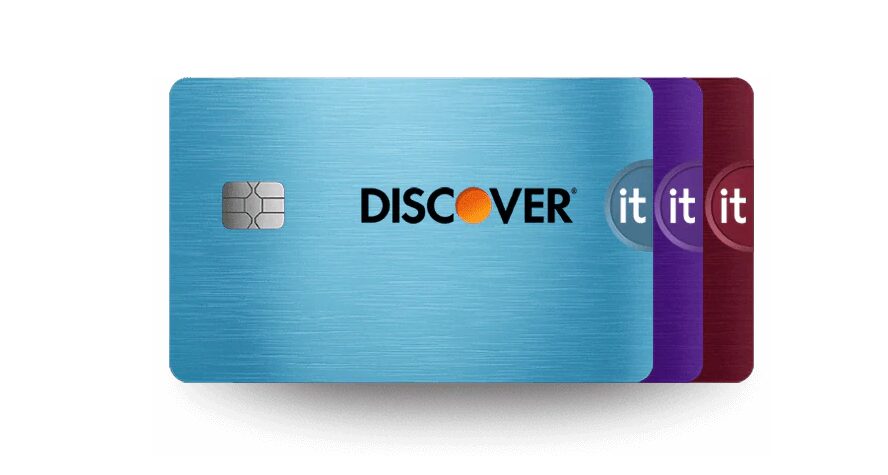How to improve your credit score for better loans in the USA

Understanding Credit Scores
A credit score is a crucial factor in determining your eligibility for loans and the interest rates you’ll receive. In the United States, credit scores typically range from 300 to 850, with a higher score indicating better creditworthiness. These numerical values are critical as they provide lenders with an indication of the risk involved in extending credit to an individual. A score below 600 is often deemed poor, while scores above 700 are considered good to excellent.
Why a Good Credit Score Matters
Improving your credit score can lead to significant benefits, such as:
- Lower Interest Rates: Higher scores usually result in lower rates on loans, which can save you thousands of dollars over time. For instance, a borrower with a score of 760 might secure a mortgage rate of 3.5%, while someone with a score of 620 may find themselves facing rates around 5.5% or higher.
- Better Loan Terms: Individuals with strong credit profiles have more options and greater flexibility when securing loans. This could mean lower fees, less stringent qualifications, or the ability to borrow larger amounts.
- Increased Approval Chances: A solid score enhances your likelihood of loan approval. Lenders use credit scores to screen applicants, and a high score can often lead to automatic approvals that lower-risk borrowers enjoy.
Understanding the factors that influence your credit score is essential for anyone looking to secure better financing. Key elements include:
- Payment History: Timely payments on credit accounts and loans significantly improve your score. This factor typically constitutes about 35% of your score, making it the most influential component. Late payments, defaults, and bankruptcies can severely damage your score.
- Credit Utilization: Keeping balances low on credit cards is beneficial. Ideally, you should aim to use no more than 30% of your available credit limit. For example, if you have a credit limit of $10,000, aim to keep your balance below $3,000.
- Length of Credit History: Longer histories tend to favor your score, accounting for about 15% of your total score. Maintaining older credit accounts, even if they’re not actively used, can positively impact this aspect of your credit profile.
In this article, we will explore actionable strategies to enhance your credit score effectively. By following expert guidelines, such as making timely payments, reducing credit card balances, and monitoring your credit report for errors, you can position yourself for better loans. This proactive approach towards credit management ensures a more secure financial future and opens doors to better financial opportunities.
Strategies to Enhance Your Credit Score
To successfully improve your credit score, it is essential to implement a series of practical strategies that address the key factors influencing your score. While achieving a higher credit score may take time, consistency in following these strategies can result in gradual and sustainable improvements, ultimately leading to better loan options and interest rates.
Establish a Timely Payment Routine
The most significant contributor to your credit score is your payment history, making it paramount to prioritize timely bill payments. Here are some effective approaches to ensure timely payments:
- Set Up Autopay: Utilize automated payments for your credit cards and loans to prevent missed payments. This can minimize the risk of late fees and negative marks on your credit report.
- Use Payment Reminders: If autopay is not an option, set reminders on your phone or through calendar applications to alert you of due dates. This extra push can help ensure that you pay your bills on time.
- Pay More Than the Minimum: Whenever possible, try to pay more than the minimum payment required. This not only helps you stay ahead of your debt but also demonstrates responsible financial behavior.
Maintain Low Credit Utilization
Credit utilization, or the percentage of your available credit that you are currently using, plays a pivotal role in determining your credit score. It is recommended to maintain a credit utilization ratio below 30%. Techniques to achieve this include:
- Pay Down Existing Balances: Focus on reducing outstanding balances on credit cards. This can be done through budgeting strategies that allow you to allocate extra funds towards debt repayment.
- Request Credit Limit Increases: If you have a history of responsible credit use, consider requesting an increase in your credit limits. This can improve your utilization ratio, provided you do not increase your spending.
- Avoid New Debt Before Applying for Loans: If you are planning to apply for a significant loan, such as a mortgage, avoid accumulating additional credit card debt during this period, as it can negatively impact your credit utilization.
Regularly Monitor Your Credit Report
By actively monitoring your credit report, you can identify discrepancies and rectify any errors that may be adversely affecting your credit score. To effectively manage your credit report:
- Request Your Free Annual Credit Reports: Under federal law, you are entitled to one free credit report per year from each of the three major credit bureaus: Equifax, Experian, and TransUnion. Take advantage of this opportunity to review your reports for accuracy.
- Dispute Inaccuracies Promptly: If you find errors on your credit report, such as incorrect late payments or outdated account information, dispute them immediately with the credit bureau to have them corrected.
- Consider Credit Monitoring Services: Enrolling in credit monitoring services can provide you with real-time alerts regarding significant changes in your credit report, offering insight into potential identity theft or fraudulent activity.
By integrating these strategic measures into your financial routine, you can systematically enhance your credit score, paving the way for improved financing opportunities in the future. Remember, the journey toward achieving a higher credit score requires patience and dedication, but the long-term benefits are well worth the effort.
Additional Steps to Strengthen Your Credit Score
In addition to the foundational strategies previously outlined, several supplementary steps can be taken to further enhance your credit score. These methods can provide additional leverage in controlling your financial health and optimizing your creditworthiness, facilitating access to better loans and lower interest rates.
Diversify Your Credit Mix
Your credit mix, which comprises the various types of credit accounts you hold, accounts for about 10% of your credit score. A healthy mix can indicate to lenders that you are capable of managing different types of credit. Consider the following:
- Incorporate Installment Loans: If you primarily have credit cards, consider adding an installment loan, such as an auto loan or personal loan, to your credit portfolio. Responsible management of these accounts can enhance your score.
- Be Cautious with New Accounts: While diversifying your credit mix is beneficial, applying for many new accounts in quick succession can negatively impact your score. Approach the addition of new credit cautiously.
Limit Hard Inquiries
Whenever you apply for a new line of credit, lenders conduct hard inquiries into your credit history, which can cause a slight drop in your credit score. To manage this effectively, consider the following:
- Space Out Applications: Avoid applying for multiple credit products simultaneously. Space out applications by several months to mitigate the impact of hard inquiries on your score.
- Utilize Rate Shopping Techniques: If you are seeking a loan, such as a mortgage or auto loan, limit your applications to a specific timeframe. Many scoring models treat multiple inquiries within a short period as a single inquiry, allowing you to shop around without substantial score penalties.
Practice Responsible Credit Card Use
How you use your credit cards has a profound impact on your credit score. To leverage your credit cards effectively, consider the following strategies:
- Keep Old Accounts Open: The length of your credit history constitutes 15% of your score. Even if you are not using them actively, keeping older accounts open can benefit your score by increasing the average age of your credit accounts.
- Avoid Closing Active Accounts: Closing a credit card can increase your utilization ratio if you carry balances on other cards. Ideally, keep cards open even if they are paid off, as long as they do not have high annual fees.
Utilizing Credit-Building Tools
For individuals looking to establish or rebuild their credit, several tools are available specifically designed to assist with credit enhancement:
- Secured Credit Cards: These are ideal for people with low credit scores or no credit history. They require a cash deposit as collateral, allowing users to build credit through responsible usage while minimizing risk to lenders.
- Credit Builder Loans: Offered by some credit unions and community banks, these loans are specifically designed to help build credit. The borrowed amount is held in an account, and as you make payments, your credit history reflects responsible repayment behavior.
Implementing these additional steps can significantly influence your credit score trajectory. Cultivating diligent financial habits and utilizing the right tools empowers you to achieve a better credit standing, ultimately unlocking more favorable lending opportunities in the future.
Conclusion
Improving your credit score is a pivotal step towards securing better loans and obtaining favorable interest rates in the USA. By understanding the factors that contribute to your credit score and implementing effective strategies, you can take charge of your financial future. Make a concerted effort to pay your bills on time, as this habit accounts for the largest portion of your score. Maintaining a low credit utilization ratio is equally important; aim to keep your balances well within 30% of your available credit limits. Additionally, consider diversifying your credit mix and managing hard inquiries judiciously, as these elements can further enhance your profile.
Utilizing tools such as secured credit cards and credit builder loans can also be beneficial, especially for those starting their credit journey or rebuilding after difficulties. Remember that patience and consistency are key, as rebuilding credit takes time. Regularly monitoring your credit reports for inaccuracies and promptly disputing any errors can help ensure an accurate portrayal of your creditworthiness.
In summary, adopting a proactive approach to credit management not only positions you for better loan opportunities but also cultivates long-term financial health. By following these guidelines and remaining committed to responsible credit behaviors, you will navigate the lending landscape with greater ease and confidence.
Related posts:
Quick and Uncomplicated Personal Loans for Brazilians in the USA
The Role of Fintechs in the Modernization of the Community Banking Sector in the USA
Investments in Art and Collectibles: A New Frontier for Asset Diversification
Investing in Stocks of Sustainable Companies: The Future of the Financial Market
The Importance of Dividends for Long-Term Investors
The Importance of Tax Planning for American Investors in Times of Economic Uncertainty

Beatriz Johnson is a seasoned financial analyst and writer with a passion for simplifying the complexities of economics and finance. With over a decade of experience in the industry, she specializes in topics like personal finance, investment strategies, and global economic trends. Through her work on Web Dinheiro, Beatriz empowers readers to make informed financial decisions and stay ahead in the ever-changing economic landscape.







